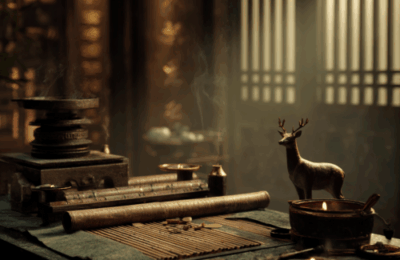《新蔡葛陵楚简|楚国精英的疾病政治学》
1994年河南新蔡葛陵楚墓出土楚简一千五百余枚,以楚文字书写卜筮祷辞和谒神祭语,为研究楚国在淮河流域的礼制与信仰提供了珍贵资料。简文记录楚国封君平夜君成的疾病占卜与祈祷,涉及“背膺疾”“逾取禀”等贞问,兼具医卜、军事与祭祀内容。它揭示了楚国贵族在身体、家国与命运之间的纠缠,也呈现出一种以疾病为核心的权力逻辑——身体成为国家的缩影,卜筮成为政治的语言。Unearthed in 1994 from the Chu tomb of Geling in Xincai, Henan Province, more than 1,500 bamboo slips inscribed with Chu script preserve oracular texts and ritual invocations, offering vital evidence of Chu culture in the Huai River region. Among them are records of Lord Pingye’s divinations concerning illness and fate, featuring entries such as “back and chest ailments” and “crossing the border to fetch supplies.” These slips reveal how Chu aristocrats entwined the body with the state and destiny—transforming illness into a political metaphor and divination into the language of power.

